
What does it mean to live off the grid?
It means life stops when the sun goes down. It means shutting the doors of your business at nightfall and losing out on money to support your family. It means spending up to 15 percent of your limited income on kerosene that gives off fumes that are responsible for more deaths a year than malaria, tuberculosis and HIV combined. It means getting treated at a hospital unequipped to store medicine, power incubators or operate medical equipment. It means not getting the education you deserve because your school lacks proper lighting, air conditioning and computers. It means living without a sense of security and feeling disconnected from the rest of modern society.
For many of us, it’s hard to imagine a life without power when electricity is the undercurrent of nearly every aspect of our lives. Yet this is the reality for more than 1.3 billion people around the world who lack access to energy.
Historically, providing access to energy is a responsibility that has rested in the government’s hands. In fact, every government in the developing world has made electrification one of its core development strategies, and the United Nations has created a “Sustainable Energy for All” initiative in a global effort to create universal energy access by 2030. The problem is that governments, especially in the non-OECD countries, are too focused on the timeworn solution of extending the grid. Not only is the grid no longer a viable option but it also falls short, incapable of reaching those who need energy the most — the more than 800 million who live off the grid in remote, rural areas where connections are unpredictable, inadequate or completely unavailable. What little access they do have often fails to meet even the most basic needs.
Global demand for energy is rapidly increasing due to population and economic growth — and 90 percent of that growth will occur in developing countries. Extending the grid to meet their needs would require up to $1 trillion with devastating consequences to the environment. That’s $48 billion a year, roughly five times the $9 billion invested now. We don’t have the money, nor do we have the time. The global population is expected to reach 10 billion by 2030 — and the grid, as it stands now, will not keep pace.
What if we could change this trajectory — and accelerate access to energy for hundreds of millions of people while ensuring the safety of our planet for future generations?

In 2007, Acumen started looking at off-grid solutions and investing in intrepid entrepreneurs creating smart, renewable approaches to bring power to the poor faster, cheaper and more effectively. We believed these entrepreneurs and their scalable solutions could give underserved populations the choice of more efficient and affordable sources of energy now rather than waiting for the grid. Our aim was to understand the poor’s energy needs and the demand for clean, low-cost solutions.

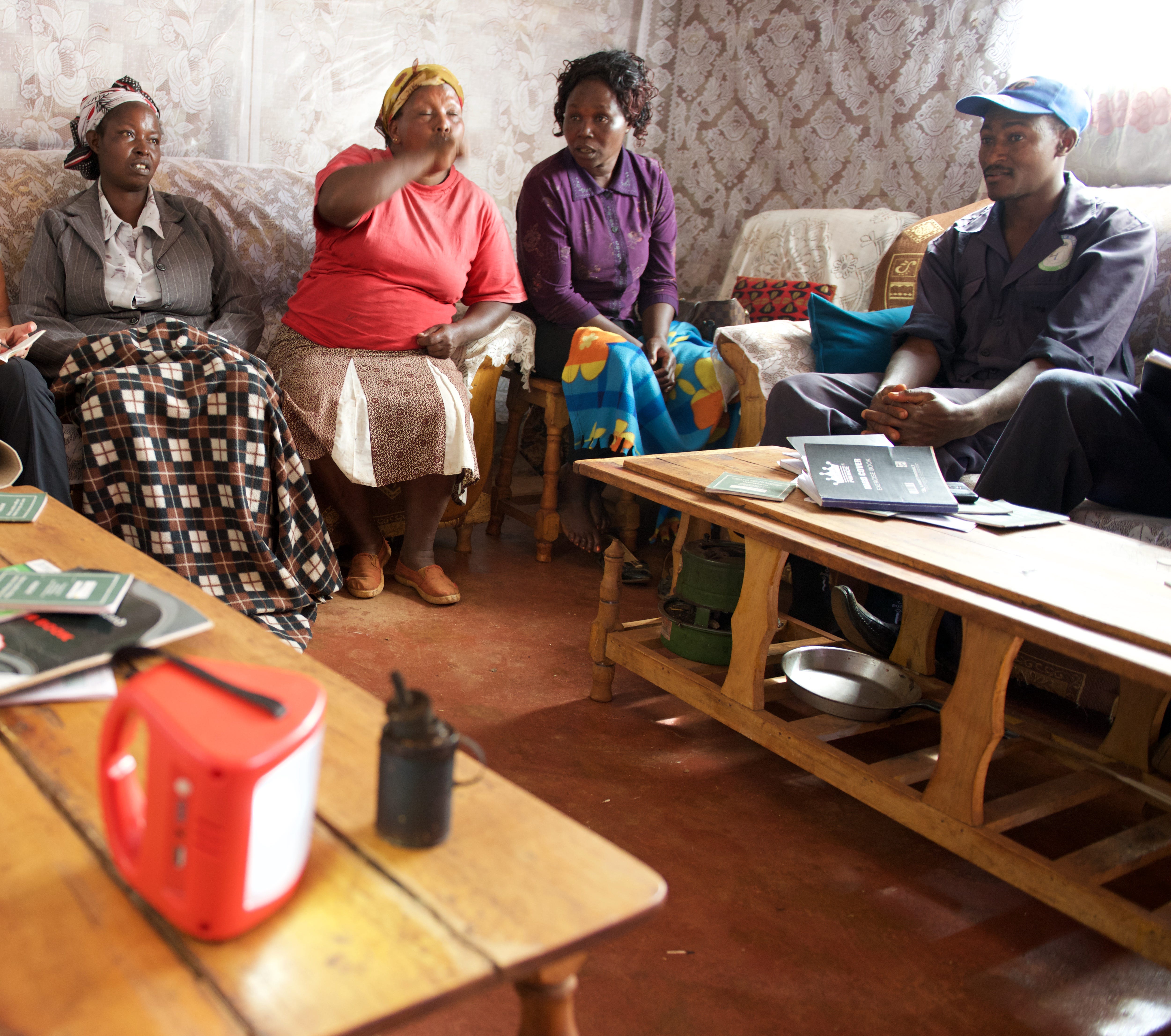


Our first energy investment was in d.light, a product company that provides affordable solar-powered lanterns to underserved communities. We saw the opportunity for solar products to fulfill an immediate need for the poor and serve as points of entry to modern energy. Started by two young guys from Stanford, Sam Goldman and Ned Tozun, d.light set out to provide low-income households in Africa with an alternative to expensive, ineffective and, not to mention, dangerous candles and kerosene. Over the years, d.light evolved to meet its customers’ needs and expanded its business model to a suite of solar products and services.
What we learned through d.light was when it comes to energy, like with cell phones, consumption created more demand. We saw that there was not only demand for new innovations but, once customers got access to energy, they were immediately more productive. Access to energy allowed them to operate longer hours, or more reliably, cut their kerosene and fossil-fuel costs and save money to spend on education, food and other household needs. When our customers had a chance to change their lives through this access, they were able to push the edge of their purchasing power, moving past a simple solar lantern to purchase energy to power their cell phones, radios and more. In short, they were able to get to the next rung in the “energy ladder,” which is how customers enter the modern power market and move up over time to have more of their energy needs met.

As we learned more about the poor’s needs and spending habits, we saw clean cook stoves as the next natural step. Around the world, nearly three billion people do not have access to clean, cooking facilities, relying on traditional sources of energy, like wood and charcoal, and inefficient stoves. Clean cook stoves present an affordable and energy-efficient alternative for low-income households, significantly reducing indoor air pollution while helping them spend less of their income on fuel.


Acumen investees BURN Manufacturing and BioLite are two cook stove companies using cutting-edge design to cut fuel consumption in half and create healthier cooking experiences for the poor. Focused on Kenya, BURN’s two cook stoves not only help its customers increase savings and reduce health risks but also protect the country’s quickly depleting forests from deforestation. BioLite’s smart, low-cost HomeStove creates a highly efficient fire that drastically reduces carbon emissions while generating electricity, providing users in the most unconnected parts of the world with modern luxuries like the ability to charge their cell phones.

As we saw the demand for energy increase and our customers desire not just lights but power, we started to seek out companies that provided a more complete solution — and a quicker route up the energy ladder. We turned our efforts to investments that could address the wider access challenge and extend our reach beyond the single customer to the larger community.
Companies like Frontier Markets, a new investment tackling last-mile distribution in India, are helping to make sure products like solar lanterns actually land in the hands of customers. Founded by Ajaita Shah, Frontier Markets establishes on-the-ground infrastructure to ensure rural customers across Rajasthan not only get access to energy products but also training and servicing.
With the price of solar reaching historical lows, we also saw an opportunity for this once out-of-reach luxury to become an increasingly accessible solution. Especially in the regions where we work, given their sunny, perennially warm climates. We began to invest in solar home system companies — like M-Kopa and Solar Now in East Africa, Orb Energy in India and Nizam Energy in Pakistan — that were taking advantage of the decreasing price of solar panels to build larger and more affordable systems for the poor.
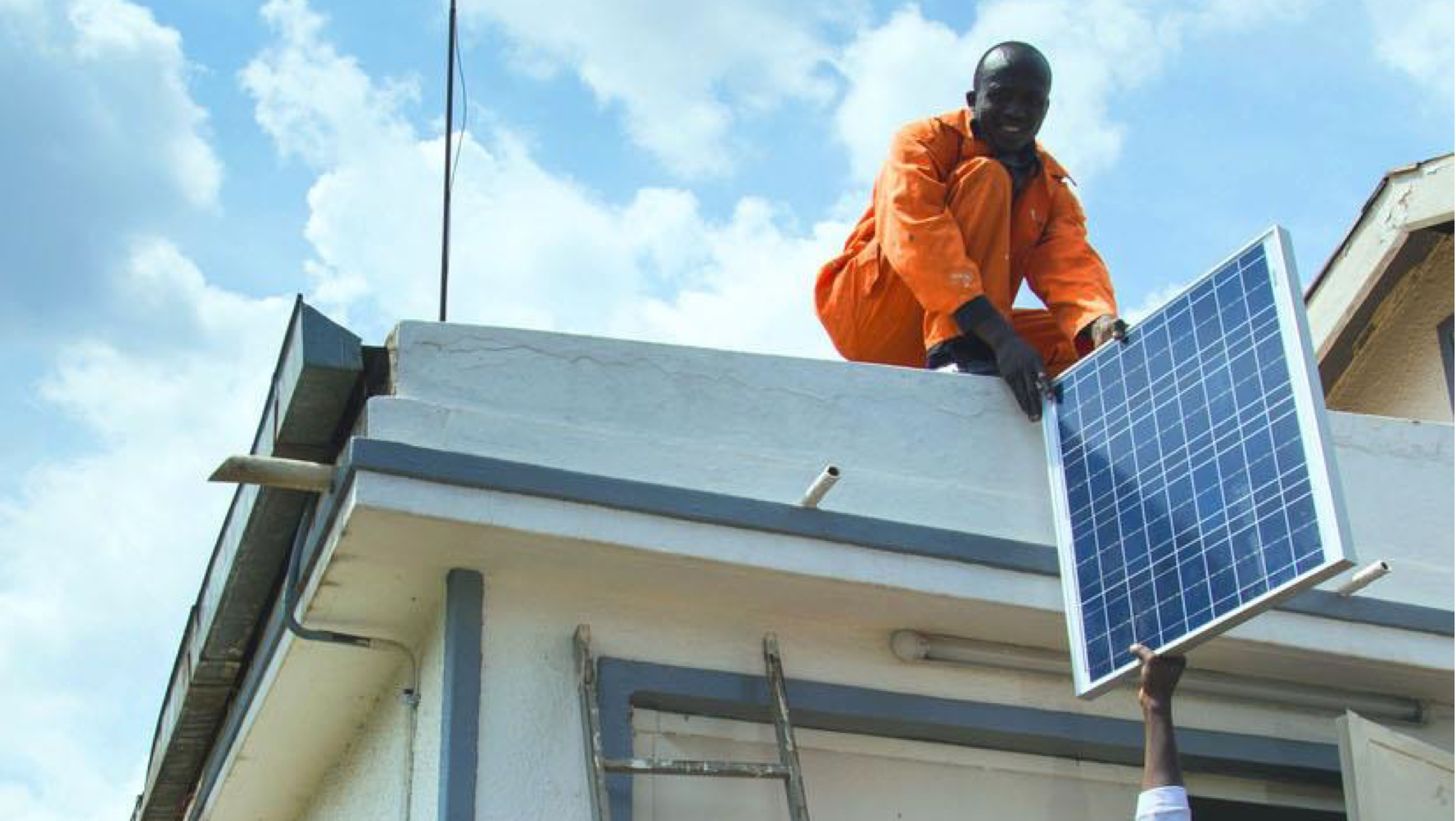


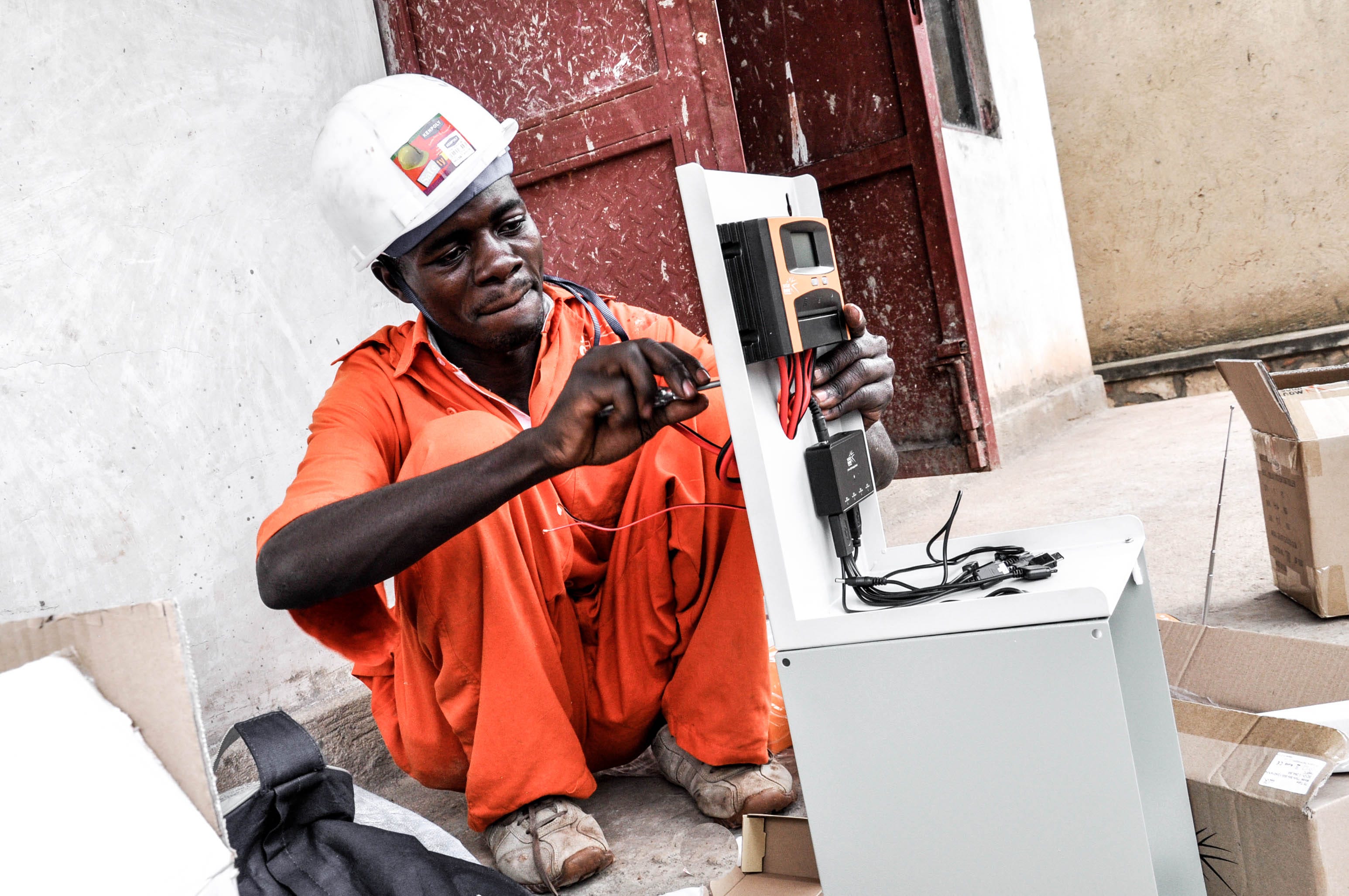
Because these solar home systems require more of an investment than lanterns, the companies developed different forms of financing to reduce the risk for low-income customers and make sure they could afford them. In Kenya, M-Kopa pioneered a pay-as-you-go system leveraging M-Pesa, the world’s leading mobile payment platform. Customers can acquire a solar home system for a small deposit, then make daily payments based on their usage — all through the convenience of their cell phones.
Our investees Devergy, Husk, Avani and AKRSP are leveraging solar, biomass and other types of renewable energy to circumvent the cost and inefficiency of the grid for rural populations across India, Pakistan and East Africa. By generating energy and powering larger facilities, these companies are changing how we think about utility and distribution and accelerating the path from energy poverty to energy access.

Over the last decade, Acumen has invested more than $19 million in 18 companies across East Africa, India and Pakistan to build the largest portfolio of off-grid energy companies serving the poor. Working across every rung of the energy ladder, these social enterprises have provided tens of millions with access to energy and helped them to save more than $1.7 billion in energy-related expenses while offsetting more than four million tons of CO2. But we aren’t stopping there.
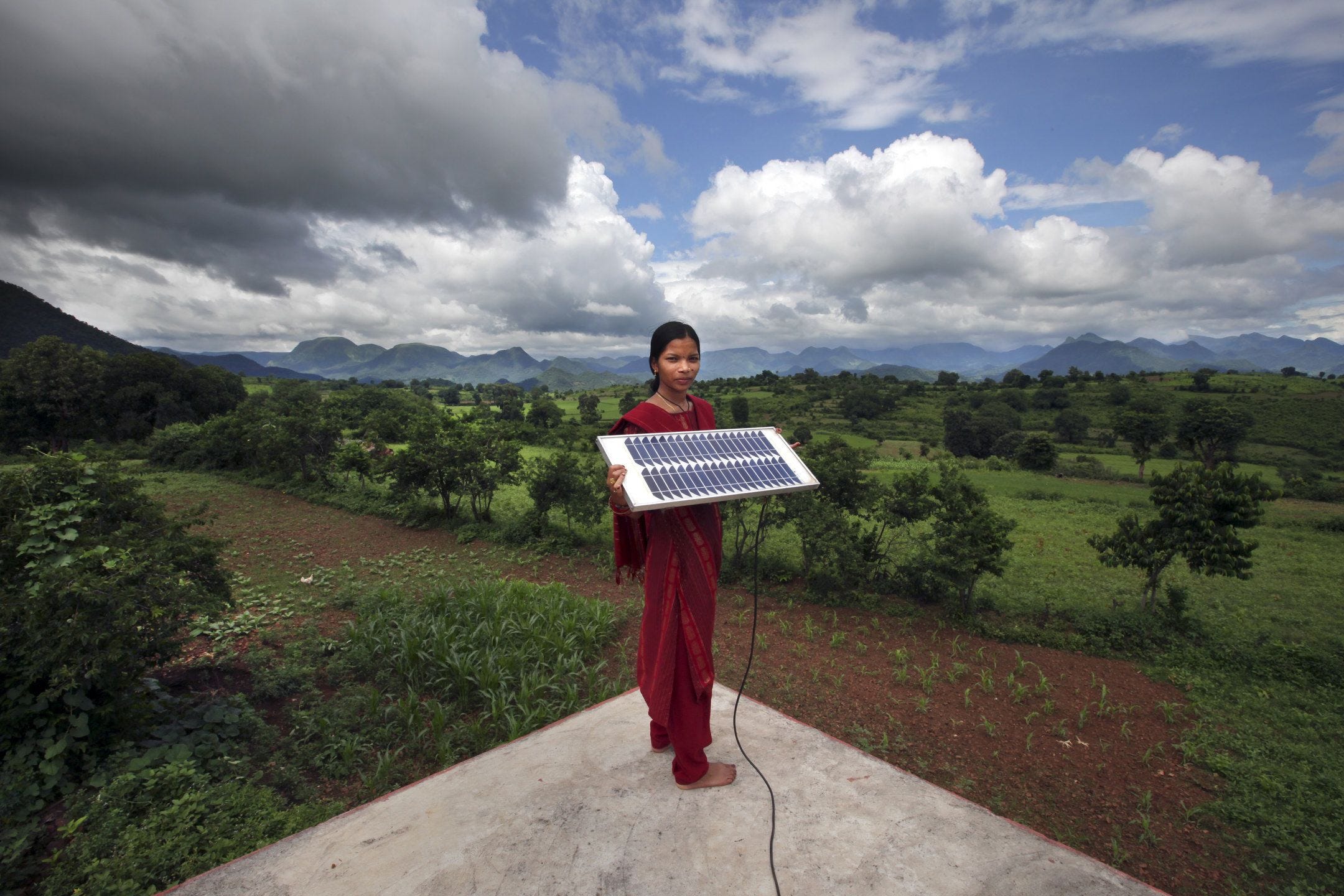
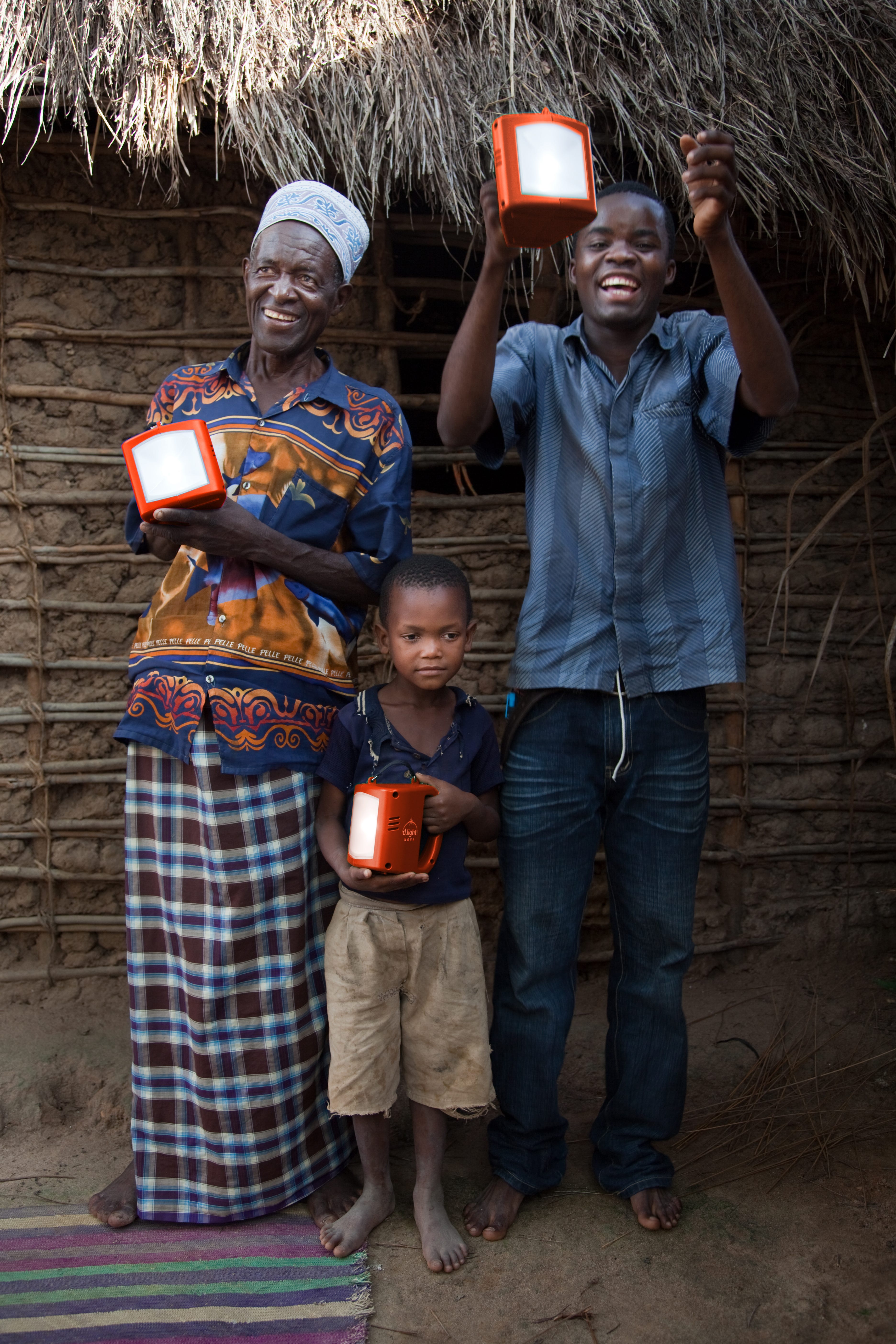


These social enterprises are driving innovation to find faster, more efficient solutions to provide the poor with new opportunities and the promise of a brighter future, but we need to bridge the funding gap by investing catalytic capital in this underinvested sector. We need to bring key companies to scale by making more investments in promising enterprises addressing critical, specialized areas such as financing, distribution and sales. We need to engage governments and public institutions to increase their focus on off-grid expansion.
Our vision is to create an off-grid solar ecosystem that fills in the missing gaps in the value chain and accelerates energy access across the developing world. Because the alternative — keeping billions of people in the dark and condemning them to a life of poverty — is not an option.



